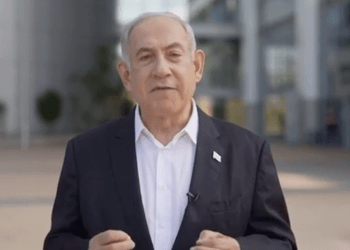Grant Shapps has been named as the United Kingdom’s new defense secretary marks a significant development as the prime minister undertakes a reshuffle within the top echelons of the government.
The decision comes in the wake of Ben Wallace’s announcement last month that he would step down from the role in conjunction with Rishi Sunak’s cabinet changes. Wallace also revealed his intention to vacate his position as a Member of Parliament in the forthcoming election.
Mr. Shapps, previously serving as the energy security and net zero secretary, has been elevated to the Ministry of Defense, marking his fifth cabinet role within a year. His journey included being the transport secretary under Boris Johnson, a brief tenure as home secretary under Liz Truss, and the appointment as business secretary when Mr. Sunak assumed office.
Claire Coutinho, the Minister for Children, is set to take over the energy security portfolio, representing her first cabinet post since her election in 2019. In turn, her Conservative colleague David Johnston will assume her former role at the Department for Education.
Upon his appointment, the new defense secretary expressed his “honor” and acknowledged his predecessor’s substantial contributions to UK defense and global security. Mr. Shapps emphasized his eagerness to collaborate with the courageous men and women of the Armed Forces, and his commitment to supporting Ukraine in its resistance against Putin’s aggressive actions.
While Mr. Shapps garnered support from colleagues, criticisms from opposition parties surfaced swiftly. Liberal Democrat defense spokesperson Richard Foord accused the appointment of lacking an independent voice for the Armed Forces. Labour’s shadow defense secretary John Healey and shadow attorney general Emily Thornberry also weighed in, reflecting the broader political context.
Even within the defense sector, concerns were raised. Former Chief of the General Staff of the British Army, Lord Dannatt, expressed reservations about Mr. Shapps’ familiarity with defense matters. Despite these concerns, there is hope that Mr. Shapps, although perhaps chosen for his alignment with the prime minister’s goals, will come to grasp the intricacies of defense policy.
Ben Wallace officially resigned from his post, leaving behind a modernized and confident Ministry of Defense. In his letter to the prime minister, he stressed the importance of continued investment in defense, especially as global uncertainties grow.



